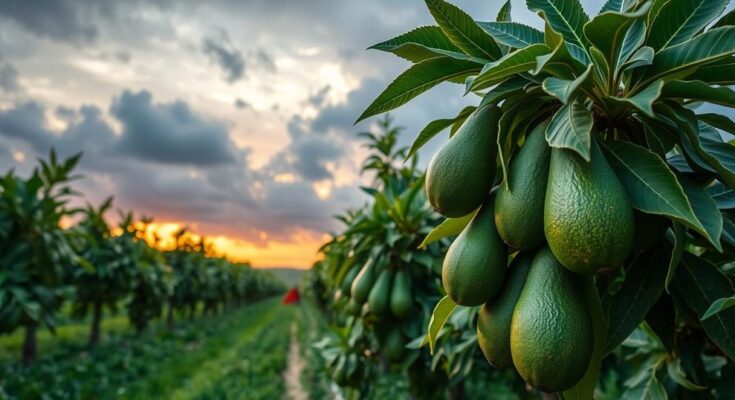The avocado season in Kenya began on February 14, facing challenges due to climate disruption. Hassan Nandwa from Fawakih seeks a successful campaign, affirming the industry’s adaptability and commitment to quality. Production delays are noted for the Hass variety, moving peak volumes to April. Despite challenges, demand remains strong and acreage has increased, underscoring resilience in the Kenyan avocado sector.
The avocado season in Kenya commenced on February 14, marking the beginning with green-skinned varieties, followed by the Hass variety. Nonetheless, adverse climate conditions have disrupted the timing of peak harvests this year, impacting the industry significantly.
Hassan Nandwa, Managing Director of Fawakih, anticipates a successful marketing campaign despite the challenges posed by climate change. He acknowledges that while the climate has become unpredictable, the industry has a rich history, allowing growers to adapt and maintain quality to meet market demands.
This year, climate change has particularly affected the flowering period of avocados, delaying the season by one month for the Hass variety. Nandwa remarks that peak volumes, traditionally reached in March, will likely occur in April instead.
Despite these delays, the quality of Kenyan avocados continues to improve yearly, instilling confidence in growers. Nandwa emphasizes that they will meet high-quality standards and maintain solid demand, particularly in European, Middle Eastern, and Far Eastern markets.
Reflecting the sustained demand, avocado acreage in Kenya has increased from 30,000 to 34,000 hectares this season. Nandwa points out that global trade disruptions have not weakened demand for Kenyan avocados, attributing this resilience to the consistent quality of the produce.
Additionally, ongoing crises in the Red Sea region pose challenges to Kenyan exports. To mitigate these issues, Nandwa noted their commitment to adopting new technologies, like active CA containers and ethylene absorbers, which have enhanced growers’ abilities to ensure superior quality despite adverse conditions.
In summary, while climate change has disrupted the timing of avocado peaks, the resilience of the industry is evident with increasing production and quality improvements. Demand remains strong in key markets, and growers are adapting by expanding acreage and utilizing the latest technology. The commitment to maintaining high standards positions Kenyan avocados favorably in international markets.
Original Source: www.freshplaza.com




